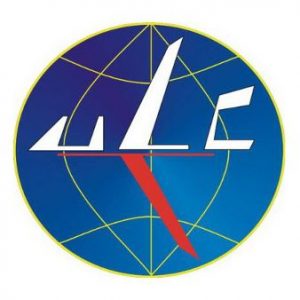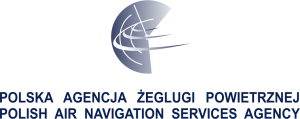
Chwileczkę. Lądujemy...

Chwileczkę. Lądujemy...

Metropolis GZM
GZM is a natural place where modern and innovative technologies can be implemented. Due to the specificity of the area, it is possible to check the operation of drones – in automatic mode – in conditions that are typical and characteristic for urban buildings, extensive transport and industrial infrastructure. Furthermore, thanks to the institutionalisation of the metropolis, the implementation of projects of supra-local importance is better coordinated here.
Metropolis GZM wants to inspire the development of key industries and create a good climate for entrepreneurship. Already today, strong research and development centres operate in the area, being at the forefront when it comes to the development of this technology in our country. An undoubted advantage of the Metropolis is the Katowice International Airport and numerous flying clubs (Gliwice, Katowice, and in close proximity to Rybnik and Bielsko-Biała).
Metropolis GZM is the perfect catalyst for this CEDD programme. Thanks to its participation it will be possible to test UAV technologies in the range of one or several cities, in rural, rural-urban, industrial, post-industrial, and recreational areas.
A number of companies related to autonomous technologies are already operating in the Metropolis, and the first pilot use of drones to study air quality has started in Katowice.
Katowice – the capital of the Metropolis is a significant centre of business events (European Economic Congress, European Congress of Small and Medium-Sized Enterprises, Impact, etc.), which greatly facilitates the introduction of the issue of using drones to public discussion.

Civil Aviation Authority
The Civil Aviation Authority is a central government administration body competent in matters of Polish civil aviation. Established under the Aviation Law of 3 July 2002, CAA works for the safety and sustainable development of civil aviation in Poland, including the development of the market for unmanned aerial vehicles.
The Civil Aviation Authority implements the government’s policy in the field of civil aviation and issues administrative decisions in this area, supervises air navigation services and the operation of aircrafts. The tasks of CAA also include the certification of entities operating in the field of civil aviation, as well as the supervision and analysis of the records of airport operators in the field of: aircraft traffic, passenger and cargo traffic. The scope of activity of the authority covers a wide area of air transport, economic issues of aviation, technology and use of equipment, airport infrastructure, air traffic, flight safety and conditions related to the work and training of personnel.
The Authority’s President is the central government administration body competent in matters of Polish civil aviation. Their competences are defined in Art. 21 of the Aviation Law. In this respect, the Authority’s President performs the basic and inalienable function of an aviation administration authority and aviation authority, consisting in the granting of rights, issuing consents and other decisions in matters of civil aviation based on the provisions of aviation law, European Union regulations and international regulations, etc.

Polish Air Navigation Services Agency
The Polish Air Navigation Services Agency provides a safe and smooth flow of air traffic in the Polish airspace. The Agency controls a space of 334,000 square kilometres – one of the largest in Europe. PANSA is the only institution in Poland that trains and employs civil air traffic controllers. Operational staff today consists of more than 570 controllers, serving in 15 airport control towers, four approach centres and one area control centre. They support nearly a million air operations a year, taking care of the safety of passengers and crew of around 2,500 aircrafts in the Polish sky every day. The agency is building and modernising technologically advanced aviation infrastructure, which is used by all users of Polish airspace.
The Polish Air Navigation Services Agency participates in projects enabling mass and commercial use of unmanned aerial vehicle (UAV) technologies, commonly known as drones. We are among those who implement the European concept regarding unmanned aerial vehicle traffic – U-Space – in Poland.
As part of the implementation of this concept, the Polish Air Navigation Services Agency is responsible, among others, for managing the UTM (Unmanned Aircraft System Traffic Management) system – i.e. a central system for coordinating and managing UAV traffic. In addition, in the area of communication airports, PANSA provides the DTM (Drone Traffic Management) function by locally managing drone operations in specific space volumes. The tasks of the Polish Air Navigation Services Agency will also include supporting the technological development of these systems and their integration with manned traffic control systems.

Management Board of Port Gdynia
A commercial seaport on the Gulf of Gdańsk, in the Pomerania Province in Gdynia, located on the Kashubian Coast. It is the third largest seaport in Poland (after Gdańsk and Szczecin).
Safety is a key element of maritime transport and is particularly relevant to port operations. In 2018, considering the dynamic increase in unmanned aerial vehicle (UAV) operations around Port Gdynia and the analyses carried out by the Port Gdynia Safety Structures, the Company’s Management Board undertook actions enabling full control of UAV operations over the area managed by the Company. The undertaking of Port Gdynia fits in with the development concepts of U-Space services, which will support UAV autonomous flight operations in the near future, ensuring the highest level of safety of air operations, people and property.
Port Gdynia joined the CEDD Programme as a partner in order to implement projects related to the development of systems for the management of flights over critical infrastructure facilities, with particular emphasis on ports. The cooperation with CEDD is a synergy of activities for the safety of airspace in the context of unmanned aerial vehicles – drones – which will allow the exchange of experience and testing solutions, together with other critical infrastructure operators.
As part of the implementation of this concept, the Polish Air Navigation Services Agency is responsible, among others, for managing the UTM (Unmanned Aircraft System Traffic Management) system – i.e. a central system for coordinating and managing UAV traffic. In addition, in the area of communication airports, PANSA provides the DTM (Drone Traffic Management) function by locally managing drone operations in specific space volumes. The tasks of the Polish Air Navigation Services Agency will also include supporting the technological development of these systems and their integration with manned traffic control systems.

Metropolis GZM
GZM is a natural place where modern and innovative technologies can be implemented. Due to the specificity of the area, it is possible to check the operation of drones – in automatic mode – in conditions that are typical and characteristic for urban buildings, extensive transport and industrial infrastructure. Furthermore, thanks to the institutionalisation of the metropolis, the implementation of projects of supra-local importance is better coordinated here.
Metropolis GZM wants to inspire the development of key industries and create a good climate for entrepreneurship. Already today, strong research and development centres operate in the area, being at the forefront when it comes to the development of this technology in our country. An undoubted advantage of the Metropolis is the Katowice International Airport and numerous flying clubs (Gliwice, Katowice, and in close proximity to Rybnik and Bielsko-Biała).
Metropolis GZM is the perfect catalyst for this CEDD programme. Thanks to its participation it will be possible to test UAV technologies in the range of one or several cities, in rural, rural-urban, industrial, post-industrial, and recreational areas.
A number of companies related to autonomous technologies are already operating in the Metropolis, and the first pilot use of drones to study air quality has started in Katowice.
Katowice – the capital of the Metropolis is a significant centre of business events (European Economic Congress, European Congress of Small and Medium-Sized Enterprises, Impact, etc.), which greatly facilitates the introduction of the issue of using drones to public discussion.

Civil Aviation Authority
The Civil Aviation Authority is a central government administration body competent in matters of Polish civil aviation. Established under the Aviation Law of 3 July 2002, CAA works for the safety and sustainable development of civil aviation in Poland, including the development of the market for unmanned aerial vehicles.
The Civil Aviation Authority implements the government’s policy in the field of civil aviation and issues administrative decisions in this area, supervises air navigation services and the operation of aircrafts. The tasks of CAA also include the certification of entities operating in the field of civil aviation, as well as the supervision and analysis of the records of airport operators in the field of: aircraft traffic, passenger and cargo traffic. The scope of activity of the authority covers a wide area of air transport, economic issues of aviation, technology and use of equipment, airport infrastructure, air traffic, flight safety and conditions related to the work and training of personnel.
The Authority’s President is the central government administration body competent in matters of Polish civil aviation. Their competences are defined in Art. 21 of the Aviation Law. In this respect, the Authority’s President performs the basic and inalienable function of an aviation administration authority and aviation authority, consisting in the granting of rights, issuing consents and other decisions in matters of civil aviation based on the provisions of aviation law, European Union regulations and international regulations, etc.

Polish Air Navigation Services Agency
The Polish Air Navigation Services Agency provides a safe and smooth flow of air traffic in the Polish airspace. The Agency controls a space of 334,000 square kilometres – one of the largest in Europe. PANSA is the only institution in Poland that trains and employs civil air traffic controllers. Operational staff today consists of more than 570 controllers, serving in 15 airport control towers, four approach centres and one area control centre. They support nearly a million air operations a year, taking care of the safety of passengers and crew of around 2,500 aircrafts in the Polish sky every day. The agency is building and modernising technologically advanced aviation infrastructure, which is used by all users of Polish airspace.
The Polish Air Navigation Services Agency participates in projects enabling mass and commercial use of unmanned aerial vehicle (UAV) technologies, commonly known as drones. We are among those who implement the European concept regarding unmanned aerial vehicle traffic – U-Space – in Poland.
As part of the implementation of this concept, the Polish Air Navigation Services Agency is responsible, among others, for managing the UTM (Unmanned Aircraft System Traffic Management) system – i.e. a central system for coordinating and managing UAV traffic. In addition, in the area of communication airports, PANSA provides the DTM (Drone Traffic Management) function by locally managing drone operations in specific space volumes. The tasks of the Polish Air Navigation Services Agency will also include supporting the technological development of these systems and their integration with manned traffic control systems.

Management Board of Port Gdynia
A commercial seaport on the Gulf of Gdańsk, in the Pomerania Province in Gdynia, located on the Kashubian Coast. It is the third largest seaport in Poland (after Gdańsk and Szczecin).
Safety is a key element of maritime transport and is particularly relevant to port operations. In 2018, considering the dynamic increase in unmanned aerial vehicle (UAV) operations around Port Gdynia and the analyses carried out by the Port Gdynia Safety Structures, the Company’s Management Board undertook actions enabling full control of UAV operations over the area managed by the Company. The undertaking of Port Gdynia fits in with the development concepts of U-Space services, which will support UAV autonomous flight operations in the near future, ensuring the highest level of safety of air operations, people and property.
Port Gdynia joined the CEDD Programme as a partner in order to implement projects related to the development of systems for the management of flights over critical infrastructure facilities, with particular emphasis on ports. The cooperation with CEDD is a synergy of activities for the safety of airspace in the context of unmanned aerial vehicles – drones – which will allow the exchange of experience and testing solutions, together with other critical infrastructure operators.
As part of the implementation of this concept, the Polish Air Navigation Services Agency is responsible, among others, for managing the UTM (Unmanned Aircraft System Traffic Management) system – i.e. a central system for coordinating and managing UAV traffic. In addition, in the area of communication airports, PANSA provides the DTM (Drone Traffic Management) function by locally managing drone operations in specific space volumes. The tasks of the Polish Air Navigation Services Agency will also include supporting the technological development of these systems and their integration with manned traffic control systems.

Metropolis GZM
GZM is a natural place where modern and innovative technologies can be implemented. Due to the specificity of the area, it is possible to check the operation of drones – in automatic mode – in conditions that are typical and characteristic for urban buildings, extensive transport and industrial infrastructure. Furthermore, thanks to the institutionalisation of the metropolis, the implementation of projects of supra-local importance is better coordinated here.
Metropolis GZM wants to inspire the development of key industries and create a good climate for entrepreneurship. Already today, strong research and development centres operate in the area, being at the forefront when it comes to the development of this technology in our country. An undoubted advantage of the Metropolis is the Katowice International Airport and numerous flying clubs (Gliwice, Katowice, and in close proximity to Rybnik and Bielsko-Biała).
Metropolis GZM is the perfect catalyst for this CEDD programme. Thanks to its participation it will be possible to test UAV technologies in the range of one or several cities, in rural, rural-urban, industrial, post-industrial, and recreational areas.
A number of companies related to autonomous technologies are already operating in the Metropolis, and the first pilot use of drones to study air quality has started in Katowice.
Katowice – the capital of the Metropolis is a significant centre of business events (European Economic Congress, European Congress of Small and Medium-Sized Enterprises, Impact, etc.), which greatly facilitates the introduction of the issue of using drones to public discussion.

Civil Aviation Authority
The Civil Aviation Authority is a central government administration body competent in matters of Polish civil aviation. Established under the Aviation Law of 3 July 2002, CAA works for the safety and sustainable development of civil aviation in Poland, including the development of the market for unmanned aerial vehicles.
The Civil Aviation Authority implements the government’s policy in the field of civil aviation and issues administrative decisions in this area, supervises air navigation services and the operation of aircrafts. The tasks of CAA also include the certification of entities operating in the field of civil aviation, as well as the supervision and analysis of the records of airport operators in the field of: aircraft traffic, passenger and cargo traffic. The scope of activity of the authority covers a wide area of air transport, economic issues of aviation, technology and use of equipment, airport infrastructure, air traffic, flight safety and conditions related to the work and training of personnel.
The Authority’s President is the central government administration body competent in matters of Polish civil aviation. Their competences are defined in Art. 21 of the Aviation Law. In this respect, the Authority’s President performs the basic and inalienable function of an aviation administration authority and aviation authority, consisting in the granting of rights, issuing consents and other decisions in matters of civil aviation based on the provisions of aviation law, European Union regulations and international regulations, etc.

Polish Air Navigation Services Agency
The Polish Air Navigation Services Agency provides a safe and smooth flow of air traffic in the Polish airspace. The Agency controls a space of 334,000 square kilometres – one of the largest in Europe. PANSA is the only institution in Poland that trains and employs civil air traffic controllers. Operational staff today consists of more than 570 controllers, serving in 15 airport control towers, four approach centres and one area control centre. They support nearly a million air operations a year, taking care of the safety of passengers and crew of around 2,500 aircrafts in the Polish sky every day. The agency is building and modernising technologically advanced aviation infrastructure, which is used by all users of Polish airspace.
The Polish Air Navigation Services Agency participates in projects enabling mass and commercial use of unmanned aerial vehicle (UAV) technologies, commonly known as drones. We are among those who implement the European concept regarding unmanned aerial vehicle traffic – U-Space – in Poland.
As part of the implementation of this concept, the Polish Air Navigation Services Agency is responsible, among others, for managing the UTM (Unmanned Aircraft System Traffic Management) system – i.e. a central system for coordinating and managing UAV traffic. In addition, in the area of communication airports, PANSA provides the DTM (Drone Traffic Management) function by locally managing drone operations in specific space volumes. The tasks of the Polish Air Navigation Services Agency will also include supporting the technological development of these systems and their integration with manned traffic control systems.

Management Board of Port Gdynia
A commercial seaport on the Gulf of Gdańsk, in the Pomerania Province in Gdynia, located on the Kashubian Coast. It is the third largest seaport in Poland (after Gdańsk and Szczecin).
Safety is a key element of maritime transport and is particularly relevant to port operations. In 2018, considering the dynamic increase in unmanned aerial vehicle (UAV) operations around Port Gdynia and the analyses carried out by the Port Gdynia Safety Structures, the Company’s Management Board undertook actions enabling full control of UAV operations over the area managed by the Company. The undertaking of Port Gdynia fits in with the development concepts of U-Space services, which will support UAV autonomous flight operations in the near future, ensuring the highest level of safety of air operations, people and property.
Port Gdynia joined the CEDD Programme as a partner in order to implement projects related to the development of systems for the management of flights over critical infrastructure facilities, with particular emphasis on ports. The cooperation with CEDD is a synergy of activities for the safety of airspace in the context of unmanned aerial vehicles – drones – which will allow the exchange of experience and testing solutions, together with other critical infrastructure operators.
As part of the implementation of this concept, the Polish Air Navigation Services Agency is responsible, among others, for managing the UTM (Unmanned Aircraft System Traffic Management) system – i.e. a central system for coordinating and managing UAV traffic. In addition, in the area of communication airports, PANSA provides the DTM (Drone Traffic Management) function by locally managing drone operations in specific space volumes. The tasks of the Polish Air Navigation Services Agency will also include supporting the technological development of these systems and their integration with manned traffic control systems.

The Łukasiewicz Research Network – Institute of Aviation
Conducts research and development works in the field of aviation, space and unmanned technologies.
The Łukasiewicz Research Network – Institute of Aviation is one of the most modern research institutions in Europe, with traditions dating back to 1926. The strategic research areas of the Institute are aviation, space and unmanned technologies.
The Łukasiewicz Research Network – Institute of Aviation provides services within eight research centers:

GZM jest naturalnym miejscem, gdzie nowoczesne i innowacyjne technologie mogą być wdrażane. Ze względu na specyfikę swojego obszaru, możliwe jest tutaj sprawdzenie pracy dronów – trybie automatycznym – w warunkach typowych i charakterystycznych dla zabudowy wielkomiejskiej, rozbudowanej infrastruktury komunikacyjnej i przemysłowej. Ponadto dzięki zinstytucjonalizowaniu funkcjonowania metropolii, realizacja projektów o znaczeniu ponadlokalnym jest tutaj lepiej skoordynowana.
Metropolia GZM chce inspirować rozwój branż kluczowych i tworzyć dobry klimat dla przedsiębiorczości. Już dzisiaj na jej obszarze działają silne ośrodki badawczo-rozwojowe, będące w czołówce, jeśli chodzi o rozwój tej technologii w naszym kraju. Niewątpliwym atutem Metropolii jest Międzynarodowy Port Lotniczy Katowice Airport oraz liczne aerokluby (Gliwice, Katowice, a także w bliskiej odległości Rybnik oraz Bielsko-Biała).
Górnośląsko-Zagłębiowska Metropolia jest idealnym katalizatorem tego programu CEDD. Dzięki jej udziałowi, możliwe będzie testowanie technologii BSP w zasięgu jednego lub kilku miast, na obszarach wiejskich, wiejsko-miejskich, przemysłowych, poprzemysłowych, rekreacyjnych.
Na obszarze Metropolii już dziś prowadzi działalność szereg firm związanych z technologiami autonomicznymi, a także rozpoczęto pierwsze pilotażowe wykorzystanie dronów do badania jakości powietrza w Katowicach.
Katowice – stolica Metropolii jest znaczącym ośrodkiem wydarzeń biznesowych (Europejski Kongres Gospodarczy, Europejski Kongres Małych i Średnich Przedsiębiorstw, Impact etc), co znacznie ułatwia wprowadzanie tematu wykorzystania dronów do dyskusji publicznej.

Urząd Lotnictwa Cywilnego jest organem centralnej administracji rządowej właściwym w sprawach polskiego lotnictwa cywilnego. Powołany na mocy ustawy Prawo lotnicze z dnia 3 lipca 2002 r. ULC działa na rzecz bezpieczeństwa i zrównoważonego rozwoju lotnictwa cywilnego w Polsce, w tym rozwoju rynku bezzałogowych statków powietrznych.
Urząd Lotnictwa Cywilnego realizuje politykę rządu w zakresie lotnictwa cywilnego oraz wydaje decyzje administracyjne z tego zakresu, nadzoruje służby żeglugi powietrznej oraz eksploatację statków powietrznych. Do zadań ULC należy również certyfikacja podmiotów działających w zakresie lotnictwa cywilnego, a także nadzór i analiza ewidencji operatorów lotnisk w zakresie: ruchu statków powietrznych, ruchu pasażerskiego i ładunków. Zakres działania organu władzy obejmuje szeroki obszar transportu lotniczego, zagadnień ekonomicznych lotnictwa, techniki i eksploatacji sprzętu, infrastruktury lotniskowej, ruchu lotniczego, bezpieczeństwa lotów oraz uwarunkowań związanych z pracą i szkoleniem personelu.
Prezes Urzędu jest centralnym organem administracji rządowej właściwym w sprawach lotnictwa cywilnego. Jego kompetencje określa art. 21 ustawy – Prawo lotnicze. Prezes Urzędu w tym zakresie wykonuje podstawową i niezbywalną funkcję organu administracji lotniczej i władzy lotniczej, polegającą m.in. na przyznawaniu uprawnień, wydawaniu zgód i innych rozstrzygnięć w sprawach lotnictwa cywilnego na podstawie przepisów prawa lotniczego, przepisów Unii Europejskiej oraz przepisów międzynarodowych.

Polska Agencja Żeglugi Powietrznej zapewnia bezpieczny i płynny przepływ ruchu lotniczego w polskiej przestrzeni powietrznej. Agencja kontroluje przestrzeń o powierzchni 334 000 kilometrów kwadratowych – jedną z największych w Europie. PAŻP jest jedyną instytucją w Polsce, która szkoli i zatrudnia cywilnych kontrolerów ruchu lotniczego. Personel operacyjny liczy dziś ponad 570 kontrolerów, pełniących służbę w 15 wieżach kontroli lotniska, czterech ośrodkach zbliżania i jednym centrum kontroli obszaru. Obsługują oni rocznie blisko milion operacji lotniczych, dbając każdej doby o bezpieczeństwo pasażerów i załóg około 2500 statków powietrznych znajdujących się na polskim niebie. Agencja buduje i modernizuje zaawansowaną technologicznie infrastrukturę lotniczą, z której korzystają wszyscy użytkownicy polskiej przestrzeni powietrznej.
Polska Agencja Żeglugi Powietrznej bierze udział w projektach umożliwiających masowe i komercyjne zastosowanie technologii bezzałogowych statków powietrznych (BSP), potocznie zwanych dronami. Jesteśmy wśród tych, którzy wdrażają w Polsce europejską koncepcję dotyczącą ruchu bezzałogowych statków powietrznych – U-Space.
W ramach realizacji tej koncepcji Polska Agencja Żeglugi Powietrznej jest odpowiedzialna, między innymi, za zarządzanie systemem UTM (Unmanned Aircraft System Traffic Management) – czyli centralnym systemem do koordynacji i zarządzania ruchem BSP. Natomiast w rejonie lotnisk komunikacyjnych PAŻP zapewnia funkcję DTM (Drone Traffic Management) poprzez lokalne zarządzanie operacjami dronów w określonych wolumenach przestrzeni. Do zadań Polskiej Agencji Żeglugi Powietrznej należeć będzie również wspieranie rozwoju technologicznego wymienionych systemów i ich integracja z systemami kontroli ruchu załogowego.

Handlowy port morski nad Zatoką Gdańską, w woj. pomorskim w Gdyni, położony na Pobrzeżu Kaszubskim. Jest trzecim co do wielkości portem morskim w Polsce (po Gdańsku i Szczecinie).
Bezpieczeństwo jest kluczowym elementem transportu morskiego i w szczególny sposób dotyczy działalności portów. W 2018 r., mając na uwadze dynamiczny wzrost operacji bezzałogowych statków powietrznych (BSP) w okolicy Morskiego Portu Gdynia SA i analizy przeprowadzone przez Struktury Bezpieczeństwa Portu Gdynia, Zarząd Spółki podjął działania, umożliwiające pełną kontrolę operacji BSP nad zarządzanym przez Spółkę terenie. Przedsięwzięcie Portu Gdynia wpisuje się w koncepcje rozwoju tzw. usług U-space, które w niedalekiej przyszłości będą wspierać operacje autonomicznych lotów BSP, z zapewnieniem najwyższego poziomu bezpieczeństwa operacji lotniczych, ludzi i mienia.
Port Gdynia dołączył jako partner do Programu CEDD, w celu realizacji projektów związanych z rozwojem systemów do zarządzania lotami nad obiektami infrastruktury krytycznej, ze szczególnym uwzględnieniem portów. Współpraca z CEDD to synergia działań na rzecz bezpieczeństwa przestrzeni powietrznej w kontekście bezzałogowych statków powietrznych, dronów, która pozwoli na wymianę doświadczeń oraz testowanie rozwiązań, wraz z innymi operatorami infrastruktury krytycznej.
W ramach realizacji tej koncepcji Polska Agencja Żeglugi Powietrznej jest odpowiedzialna, między innymi, za zarządzanie systemem UTM (Unmanned Aircraft System Traffic Management) – czyli centralnym systemem do koordynacji i zarządzania ruchem BSP. Natomiast w rejonie lotnisk komunikacyjnych PAŻP zapewnia funkcję DTM (Drone Traffic Management) poprzez lokalne zarządzanie operacjami dronów w określonych wolumenach przestrzeni. Do zadań Polskiej Agencji Żeglugi Powietrznej należeć będzie również wspieranie rozwoju technologicznego wymienionych systemów i ich integracja z systemami kontroli ruchu załogowego.

Sieć Badawcza Łukasiewicz – Instytut Lotnictwa należy do najnowocześniejszych placówek badawczych w Europie, o tradycjach sięgających 1926 roku. Strategicznymi obszarami badawczymi Instytutu są technologie lotnicze, kosmiczne oraz bezzałogowe.
Sieć Badawcza Łukasiewicz – Instytut Lotnictwa świadczy usługi w ramach ośmiu centrów badawczych: